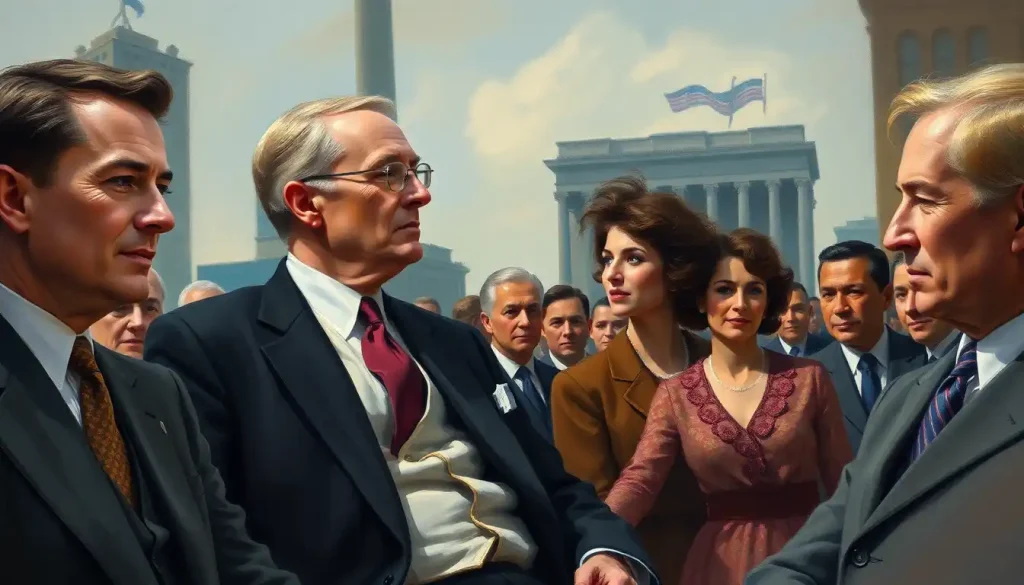Money buys comfort, luxury, and influence – but as countless souls throughout history have discovered, it can quietly steal the very freedoms we hold most dear. This timeless warning, encapsulated in the powerful words “If ye love wealth better than liberty,” resonates as strongly today as it did when first uttered. But where did this cautionary phrase originate, and why does it continue to hold such relevance in our modern society?
The quote “If ye love wealth better than liberty, the tranquility of servitude better than the animating contest of freedom, go home from us in peace. We ask not your counsels or arms. Crouch down and lick the hands which feed you. May your chains set lightly upon you, and may posterity forget that ye were our countrymen” is attributed to Samuel Adams, one of the Founding Fathers of the United States. These words, spoken during the tumultuous period of the American Revolution, encapsulate the fierce spirit of independence that drove the colonists to fight for their freedom.
But why does this centuries-old warning still strike a chord with us today? In our increasingly materialistic world, where the pursuit of wealth often takes center stage, Adams’ words serve as a stark reminder of the potential cost of prioritizing financial gain over personal freedom. The conflict between wealth and liberty is not a new phenomenon, but it has taken on new dimensions in our modern era of global capitalism and digital surveillance.
The Historical Context: Samuel Adams and the American Revolution
To truly understand the weight of Adams’ words, we must first delve into the historical context in which they were spoken. The American Revolution was not merely a political uprising; it was a fight for personal freedom and self-determination. Constitution Wealth: Safeguarding Financial Freedom Through Constitutional Principles explores how the foundational documents of the United States were designed to protect both economic and personal liberties.
Samuel Adams, a key figure in the independence movement, was acutely aware of the economic pressures facing the colonists. The British Crown’s oppressive taxation and trade restrictions were not just financial burdens; they represented a fundamental threat to the colonists’ freedom to determine their own economic destiny. In this context, Adams’ warning was not just about the abstract concept of liberty, but about the very real struggle for independence and self-governance.
The colonial era was marked by a complex interplay of economic and political forces. Many colonists faced a difficult choice: maintain their wealth and status by remaining loyal to the Crown, or risk everything in the pursuit of liberty. Adams’ quote challenges those who might be tempted to choose the former, suggesting that such a choice would be a betrayal of their fellow countrymen and the principles they held dear.
Wealth and Liberty: A Complex Relationship
To fully grasp the implications of Adams’ warning, we must first define what we mean by wealth and liberty. Wealth, in its broadest sense, encompasses not just financial assets, but also material possessions, social status, and economic power. Liberty, on the other hand, refers to personal freedom – the ability to make choices about one’s life without undue constraint or coercion.
The importance of liberty cannot be overstated. It is the cornerstone of human dignity and self-determination. As the article Liberty Through Wealth: Achieving Financial Freedom and Personal Independence suggests, true wealth should ideally enhance our liberty rather than diminish it. However, the pursuit of wealth can often lead us down paths that compromise our personal freedoms in subtle and not-so-subtle ways.
Consider, for instance, the golden handcuffs phenomenon. High-paying jobs often come with demanding schedules and stressful responsibilities that can severely limit personal time and freedom. The pursuit of wealth can lead individuals to sacrifice their health, relationships, and personal passions. In essence, they trade their liberty for the promise of financial security and material comfort.
Another example is the way wealth can influence decision-making. Those with significant financial interests may find themselves supporting policies or practices that protect their wealth but potentially infringe on broader societal freedoms. This could range from advocating for lower taxes at the expense of public services to supporting regulations that benefit large corporations but stifle small businesses and individual entrepreneurs.
The Modern Implications: Wealth’s Influence on Society
In our contemporary world, the tension between wealth and liberty has taken on new dimensions. Corporate influence on politics and legislation has reached unprecedented levels, with lobbying and campaign contributions often shaping policies in favor of the wealthy few rather than the broader public interest. This phenomenon raises serious questions about the health of our democratic systems and the true extent of our individual liberties.
The role of money in shaping public opinion is another critical concern. In an age of information overload, those with financial resources have a disproportionate ability to control narratives and influence public discourse. This power can be used to sway elections, shape consumer behavior, and even influence social values. Wealth Quotes: Timeless Wisdom to Inspire Financial Success offers insights into how influential thinkers have viewed the power and responsibility that come with wealth.
Privacy concerns in the digital age present yet another facet of this complex issue. Our personal data has become a valuable commodity, and many of us unwittingly trade our privacy for the convenience and benefits offered by tech giants. This erosion of privacy represents a significant loss of personal liberty, often justified in the name of economic progress or national security.
Economic inequality, which has been steadily increasing in many parts of the world, also has profound implications for individual freedoms. Extreme wealth disparity can lead to a two-tiered society where access to education, healthcare, and even justice is determined by one’s financial status. Wealth Inequality Quotes: Powerful Insights on Economic Disparity provides thought-provoking perspectives on this pressing issue.
Balancing Act: Wealth and Liberty in Personal Life
Given these challenges, how can we as individuals strike a balance between pursuing financial stability and preserving our personal freedoms? The first step is recognizing the inherent value of liberty. As the saying goes, “Health is wealth,” and the same could be said for freedom. True prosperity encompasses more than just material possessions, as explored in Wealth Is the Ability to Fully Experience Life: Redefining True Prosperity.
Setting priorities and making conscious choices is crucial. This might involve reassessing career paths, lifestyle choices, and consumption habits. Are we working to live, or living to work? Are our purchasing decisions aligned with our values, or are we caught in a cycle of conspicuous consumption?
Strategies for maintaining liberty while pursuing financial stability might include:
1. Embracing minimalism and focusing on experiences rather than possessions
2. Investing in personal growth and skills that enhance autonomy
3. Building multiple streams of income to reduce dependence on a single employer
4. Practicing mindful consumption and avoiding lifestyle inflation
Civic engagement and political awareness are also vital. By staying informed about political issues and participating in the democratic process, we can help shape policies that protect individual rights and promote a more equitable society.
Societal Solutions: Preserving Liberty in a Wealth-Driven World
While individual actions are important, addressing the tension between wealth and liberty also requires broader societal solutions. Education plays a crucial role in this regard. By fostering critical thinking skills and financial literacy, we can empower individuals to make informed decisions about their economic lives and to recognize threats to their personal freedoms.
Promoting transparency in government and business is another key strategy. When the mechanisms of power are visible and understandable, it becomes harder for wealth to exert undue influence over our democratic processes. This might involve campaign finance reform, stricter lobbying regulations, or enhanced corporate governance standards.
Supporting policies that protect individual rights is equally important. This could include robust data privacy laws, worker protections, and measures to ensure equal access to justice regardless of financial status. Liberty Wealth: Achieving Financial Freedom Through Smart Investing explores how smart financial decisions can enhance personal freedom without compromising societal values.
Encouraging community involvement and collective action is also crucial. When individuals come together to address common concerns, they can often achieve more than they could alone. This might involve participating in local government, joining community organizations, or supporting grassroots movements that align with one’s values.
The Ongoing Challenge: Valuing Liberty in a Material World
As we reflect on Samuel Adams’ powerful warning, it’s clear that the challenge of balancing wealth and liberty remains as relevant today as it was in the 18th century. The forms of wealth and the nature of the threats to our liberty may have changed, but the fundamental tension persists.
In our pursuit of financial success and material comfort, we must remain vigilant guardians of our personal freedoms. This doesn’t mean rejecting wealth outright – indeed, financial stability can be a powerful tool for enhancing personal liberty. Rather, it means approaching wealth with a critical eye, always questioning whether our pursuit of it is enhancing or diminishing our freedom.
Wealth of Heart and Mind: Redefining True Prosperity Beyond Material Riches reminds us that true wealth extends far beyond our bank accounts. It encompasses our relationships, our experiences, our personal growth, and yes, our freedom to live life on our own terms.
As we navigate the complex landscape of modern capitalism, let us heed Adams’ words not as a rejection of wealth, but as a call to prioritize our values. Let us strive for a world where the pursuit of prosperity enhances rather than diminishes our liberties. And let us remember that the truest form of wealth is not measured in dollars and cents, but in the richness of a life lived freely and authentically.
In the words of another timeless piece of wisdom, Wealth Consists in Having Few Wants: The Art of Contentment and Financial Freedom. Perhaps by moderating our material desires and focusing on what truly matters, we can find that elusive balance between wealth and liberty that Adams so passionately championed.
As we conclude this exploration, it’s worth pondering: What does liberty mean to you personally? How do your financial decisions impact your freedom? And most importantly, what steps can you take today to ensure that your pursuit of wealth enhances rather than diminishes your personal liberty?
Remember, Wealth’s Limitations: What Money Can’t Buy or Guarantee serves as a poignant reminder that true freedom often lies beyond the reach of mere financial resources. In the grand tapestry of life, let us weave a pattern where wealth and liberty are not opposing forces, but complementary threads creating a richer, more vibrant existence for all.
References:
1. Adams, S. (1776). Speech to the State House of Pennsylvania, Philadelphia.
2. Piketty, T. (2014). Capital in the Twenty-First Century. Harvard University Press.
3. Sandel, M. J. (2012). What Money Can’t Buy: The Moral Limits of Markets. Farrar, Straus and Giroux.
4. Zuboff, S. (2019). The Age of Surveillance Capitalism: The Fight for a Human Future at the New Frontier of Power. PublicAffairs.
5. Sen, A. (1999). Development as Freedom. Oxford University Press.
6. Reich, R. B. (2015). Saving Capitalism: For the Many, Not the Few. Knopf.
7. Stiglitz, J. E. (2012). The Price of Inequality: How Today’s Divided Society Endangers Our Future. W. W. Norton & Company.
8. Putnam, R. D. (2000). Bowling Alone: The Collapse and Revival of American Community. Simon & Schuster.
9. Kasser, T. (2002). The High Price of Materialism. MIT Press.
10. Schwartz, B. (2004). The Paradox of Choice: Why More Is Less. Ecco.












Would you like to add any comments? (optional)